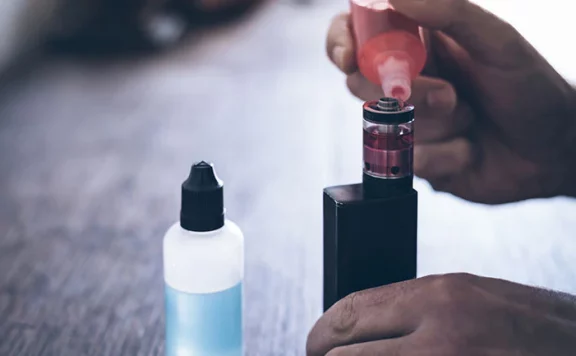The landscape of drug testing, especially within workplaces and sports organizations, has witnessed significant challenges with the advent of synthetic urine products. These products are increasingly marketed to cannabis users as a foolproof method to evade positive drug test results. This critical review aims to dissect the components, marketing strategies, effectiveness, and ethical considerations surrounding synthetic urine products in the context of cannabis use.
Table of Contents
Understanding Synthetic Urine
Synthetic urine, also known as fake urine, is a laboratory-produced substance designed to mimic the chemical properties and appearance of human urine. It contains components such as creatinine, urea, uric acid, and specific gravity to replicate the characteristics of natural urine closely. The primary intention behind its creation was for calibration and testing of urine analysis equipment, but its misuse has become prevalent, particularly among cannabis users aiming to circumvent drug tests.
Marketing Strategies Targeted at Cannabis Users
The marketing of synthetic urine has evolved, becoming more sophisticated and targeted. Online retailers and head shops are the primary outlets for these products, often promoting them on cannabis-focused forums and websites. The advertising strategies typically emphasize the reliability, undetectability, and ease of use of synthetic urine. Buying fake pee is commonly utilized to attract users seeking quick solutions to pass drug tests.
Manufacturers often highlight testimonials and success stories, creating a sense of community and shared knowledge among users. The packaging and branding of these products are designed to instill confidence, with claims of laboratory-grade quality and 100% success rates. Some brands even offer temperature strips and heating pads to ensure the synthetic urine matches body temperature, further enhancing its credibility.
Effectiveness of Synthetic Urine in Drug Testing
The effectiveness of synthetic urine in fooling drug tests has been a subject of much debate. In the early days, synthetic urine was highly effective due to the simplicity of drug testing methodologies. However, as testing techniques have become more sophisticated, the detection of synthetic urine has improved.
Modern drug testing facilities employ various measures to identify synthetic urine. These include testing for the presence of biochemicals that are typically found in human urine but absent in synthetic versions, such as specific enzymes and hormones. Moreover, advancements in testing technology have led to the development of more sensitive and accurate tests, capable of detecting synthetic urine’s discrepancies.
Despite these advancements, many synthetic urine products still manage to evade detection, particularly in less rigorous testing environments. This ongoing cat-and-mouse game between synthetic urine manufacturers and drug testing labs highlights the need for continuous innovation on both sides.
Ethical and Legal Considerations
The use of synthetic urine raises several ethical and legal issues. For employers, the primary concern is ensuring a safe and drug-free workplace. The use of synthetic urine to circumvent drug tests undermines these efforts, potentially allowing impaired individuals to perform tasks that could endanger themselves and others.
From a legal perspective, the sale and use of synthetic urine are subject to varying regulations. Some states in the U.S. have enacted laws specifically prohibiting the sale or use of synthetic urine to defraud drug tests. For instance, South Carolina, Texas, and Arkansas have laws in place that make it illegal to sell or use products designed to falsify drug test results. Violating these laws can result in fines and criminal charges.
For cannabis users, particularly those in states where cannabis is legal for medicinal or recreational use, the use of synthetic urine presents a moral dilemma. While they may feel justified in avoiding what they see as an unfair and outdated testing system, they are nonetheless engaging in deceptive practices.
Alternatives and Future Directions
The persistent use of synthetic urine by cannabis users suggests a need for a reevaluation of drug testing policies. In regions where cannabis is legal, employers and regulatory bodies could consider alternative approaches to ensure workplace safety without infringing on personal freedoms. One such approach is impairment testing, which measures an individual’s current level of impairment rather than historical drug use.
Additionally, advancements in biotechnology may provide new solutions for drug testing that are less invasive and more accurate. For instance, saliva and hair tests are becoming more prevalent and are harder to manipulate with synthetic substitutes.
Conclusion
The marketing and use of synthetic urine among cannabis users reflect broader societal and regulatory challenges in drug testing. While synthetic urine products have evolved to meet the demand for effective evasion tools, their use raises significant ethical and legal concerns. The ongoing battle between synthetic urine manufacturers and drug testing laboratories underscores the need for continuous innovation and potential reevaluation of drug testing policies.
As we move forward, it is crucial to balance the need for workplace safety with respect for personal liberties, particularly in areas where cannabis use is legal. By exploring alternative testing methods and updating regulatory frameworks, we can address the challenges posed by synthetic urine while ensuring fair and accurate drug testing practices.
Author Bio:
I’m John Llanasas a highly- skilled well experienced professional article writer, writing informative and engaging articles covering topics mostly related to health, home improvement, productivity, technology, education, and travel. By doing a lot of research I can produce productive content full of information. I am a master of creative writing, web writing, Article rewriting, and proofreading. Hard work is the key to my success. That’s why I am very punctual and dedicated to my work. Creativity is an art for me that’s why plagiarism is not appreciated at all.







